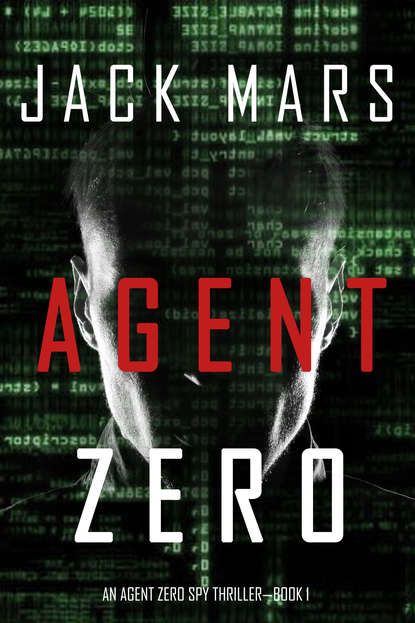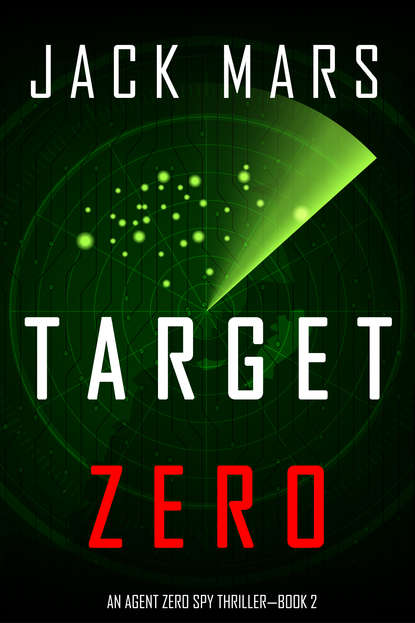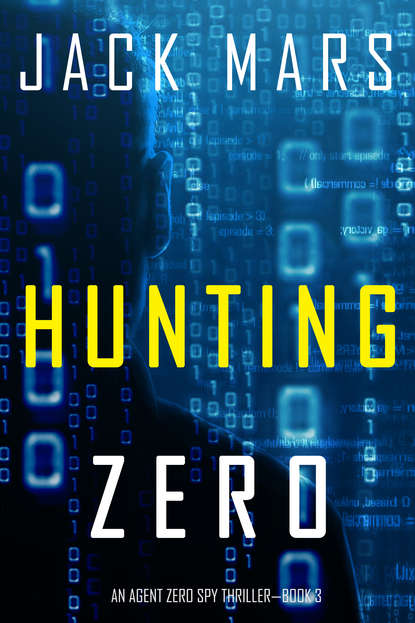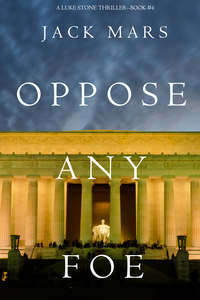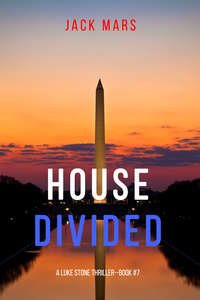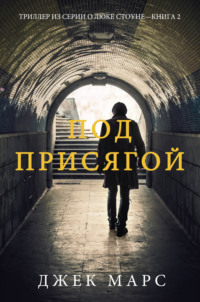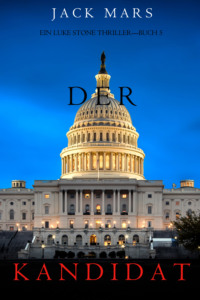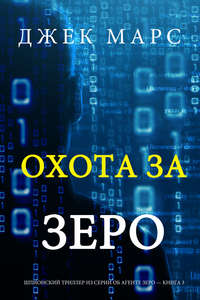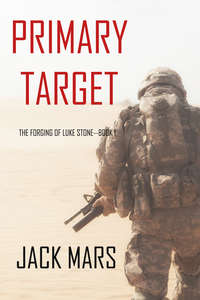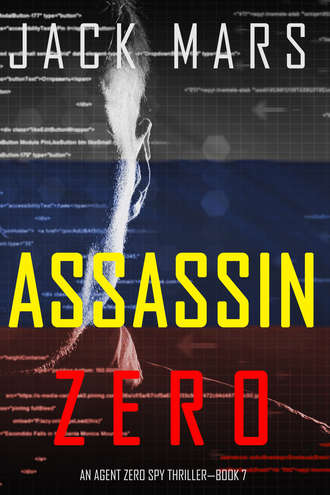
Полная версия
Assassin Zero
Rutledge found himself very fond of the slight blonde woman who refused to back down from a scowling four-star general. He turned to her and asked, “What do you propose, Johansson?”
“Our top engineer is currently devising a method of tracking this sort of weapon. Based on Havana, I would say the perpetrators are most likely to stay close to the water and target a coastal area. With your approval, sir, I’d like to send a Special Ops team to find them.”
Rutledge nodded slowly—a CIA operation sounded far more preferable than sounding the horn on the potential for an attack. Keep it small, keep it quiet, he thought. Then an idea came, sudden as an actual light bulb coming to life.
“Johansson,” he asked, “one of your agents was the guy that cracked the Kozlovsky affair, yes? He found the interpreter and retrieved the recording?”
Johansson was oddly hesitant, but she nodded once. “Yes, sir.”
“What was his name?”
“That would be… well, his call sign is Zero. Agent Zero, sir.”
“Zero. Right.” Rutledge rubbed his chin. “Him. I want him on this.”
“Um, sir… he’s not quite field-ready at this time. He’s transitioning back to operations work.”
The president didn’t know what that meant, but it sounded like an excuse or a euphemism to him. “It’s your job to make him ready, Deputy Director.” There was no swaying him now; Rutledge knew that this was the right call. The agent had singlehandedly rescued former President Pierson from assassination, and uncovered the secret pact between Harris and the Russians. If anyone could find the perpetrators and this ultrasonic whatever-it-was, it was him.
“If I may,” Johansson said, “the CIA has one of the very best trackers in the world at our disposal. A former Ranger, and a highly decorated agent in his own right—”
“Great,” Rutledge interrupted, “send him too. As soon as possible.”
“Yes sir,” Johansson acquiesced quietly, staring down at the tabletop.
“Is there anything else?” he asked. No one spoke, so Rutledge rose from his seat, and the four others in the Situation Room stood as well. “Then keep me updated, and, uh… try to enjoy the holiday, I suppose.” He nodded to them and strode out of the conference room, where the two Secret Service agents instantly fell in step with him.
Always being watched. Never truly alone.
Actually, he realized, he was wrong about that. In the moment it felt quite the opposite—no matter how many people were around him, advising him, protecting him, prodding him in one direction or another, he did feel truly alone.
CHAPTER FIVE
Zero woke to sunlight filtering through the blinds, warm on his face. He sat up and stretched his arms, feeling well rested. But something wasn’t right; this bedroom was bigger than it should have been, yet familiar. Instead of a single bureau opposite him there were two, one of them shorter and topped with a mirror.
This was not his condo in Bethesda. This was his bedroom from New York—their bedroom, in the house that they shared. Before… before everything.
And when he slowly turned his head he saw, impossibly, that she was there. Lying beside him, the comforter pulled halfway up her torso, sleeping peacefully in a white tank top as she so often did. Her blonde hair was arranged perfectly on the pillow; there was a light smile on her lips. She looked angelic. Carefree. Peaceful.
He smiled and settled back down on the pillow, watching her sleep. Noting the perfect contours of her cheeks, the slight dimple in her chin that Sara had inherited. His wife, the mother of his children, the greatest love of his life.
He knew this wasn’t real, but he wished it could be, that this moment could go on forever. He reached for her and gently touched her shoulder, running his fingertips along her smooth skin, down to the elbow…
He frowned.
Her skin was cold. Her chest was not rising and falling with breath.
Not sleeping. Dead.
Killed by a lethal dose of tetrodotoxin, administered by a man Zero had called a friend, a man that Zero had let live. A decision he regretted every day.
“Wake up,” he murmured. “Please. Wake up.”
She did not stir. She wouldn’t, ever again.
“Please wake up.” His voice cracked.
It was his fault that she died.
“Wake up.”
It was his fault she was murdered.
“WAKE UP!”
Zero sucked in a breath as he sat bolt upright in bed. It was a dream; he was in his bedroom in Bethesda, white walls and plain with only one bureau. He wasn’t sure if he had actually shouted or not, but his throat was hoarse and a powerful headache was coming on.
He groaned and checked his phone for the time as he came around to reality. The sun was up; it was Thanksgiving. He had to get out of bed. He had to get the turkey in the oven. He couldn’t dwell on a nightmare, because that would mean dwelling on the past, and dwelling about…
About…
“Oh my god,” he murmured under his breath. His hands trembled and his stomach turned.
Her name. He couldn’t remember her name.
For a long moment he sat like that, his gaze darting around the bedspread as if the answer was going to be written there on its surface. But it wasn’t there, and it didn’t seem to be in his head either. He could not remember her name.
Zero tore the blankets off of him and practically fell out of bed. He dropped to his hands and knees and reached underneath it, pulling out a fireproof security box the size of a briefcase.
“Key,” he said aloud. “Where’s the damn key?” He scrambled to his feet again and tore open his top dresser drawer, nearly pulling it out completely. He snatched up the small silver key that laid there, amongst balls of socks and curled belts, and flopped to the floor again as he unlocked the security box.
Inside was an assortment of important documents and items—among them his and the girls’ passports, his birth certificate and Social Security card, two pistols, a thousand dollars in cash, and his wedding ring. He pulled all of those out and made a small pile on the floor, because none of them were what he was looking for. He paused briefly on a picture, a photo of the four of them in San Francisco one summer, when Maya was five and Sara was three. The woman in the photo was completely familiar; he could hear her playful laugh in his head, feel her breath on his ear, the warm touch of her hand in his.
“What’s her goddamn name?!” His voice wavered as he tossed the photo aside and kept digging. It had to be in here. A lot of his things were still in Maria’s basement, but he was certain he would have put it in the security box…
“Thank god.” He recognized the manila envelope and tore the flap opening it. There was a single sheet inside, printed on thick stock and embossed with the stamp of a New York court. Their marriage license.
His throat ran dry as he stared at the name. “Katherine,” he said to himself. “Her name was Katherine.” But there was no relief in it; he felt only terror. The name did not register any memories in him or familiarity. It was like a foreign word on his tongue. “Katherine,” he said again. “Katherine Lawson.”
Still it didn’t sound right, even though it was printed right there in front of his eyes in black and white. Had she been Katherine? Had he called her Katherine? Or maybe it was…
“Kate.”
The air rushed out of him in an enormous sigh. Kate. He called her Kate. The memories rushed back, as sudden as a faucet turning on. Now there was relief, but still it was underscored by the very real fact that for those few harrowing minutes, he had absolutely forgotten his wife’s name—and that was not something he could write off as an arbitrary lapse.
Zero grabbed his cell phone and scrolled through his contacts. International charges be damned; he needed answers. Switzerland was six hours ahead. It would be early afternoon there, assuming their office was open.
“Pick up,” Zero pleaded. “Pick up, pick up…”
“Dr. Guyer’s office.” The female voice that answered the call was soft, tinged with a Swiss-German accent. He would have thought it sultry had he not been panicking.
“Alina?” he asked quickly. “I need to speak with Dr. Guyer, it’s very important—”
“I’m sorry,” she said, “may I ask who’s calling?”
Right. “It’s Reid. I mean, Kent. Kent Steele. Zero.”
“Ah, Agent Steele,” she said brightly. “How wonderful to hear from you.”
“Alina, it’s urgent.”
“Of course.” Her demeanor changed on a dime. “I’ll get him for you, hold a moment.”
Dr. Guyer was a brilliant Swiss neurologist, likely among the best in the world—and also the man who had installed the rice-grain-sized memory suppressor in Zero’s head four years earlier, which had wiped his memory clean of any affiliation with the CIA. But Guyer had been acting upon Zero’s own request, and later he was also the doctor who performed the procedure that restored his memory, albeit belatedly.
The two of them had been in contact on and off over the last year; the doctor had been delighted to learn that Zero’s memories had returned and eager to run further tests, but that required a trip to Switzerland, which Zero hadn’t had the time or energy to do—though he fully admitted he owed it to him. Nevertheless, if anyone could tell him what was happening in his head, it was Guyer.
“Agent Steele,” said a deep voice through the phone, accented and somber enough to suggest they were going to skip the pleasantries. “Alina said you sounded distressed. What seems to be the trouble?”
“Dr. Guyer,” Zero said. “I need help. I’m not sure what’s happening, but…” He paused as another horrid thought struck him. What if this wasn’t a private call? What if someone was listening in? The CIA had tapped his personal lines before. And if they heard all this…
You’re being paranoid. Don’t become that person again.
Even so, once the thought was in his head, he couldn’t shake it. It was best to err on the side of caution, after all. He’d just made his way back into the CIA, and it felt good. Like his life had purpose again. If they heard about this, things could change very quickly for him—and he didn’t want to fall back into the listless, fifteen-month depressive episode he’d found himself in before.
“Agent Steele? Are you still there?”
“Yes. Sorry.” Zero did his best to keep his voice even and casual as he said, “I’m, uh… having some trouble remembering things.”
“Hmm,” said Guyer thoughtfully. “Short-term or long-term?”
“I would say more of the long-term.”
“And you believe this to be of… concern?” Guyer was choosing his words carefully. Zero wondered if the doctor was thinking the same thing, that their call might be monitored. Someone like Guyer could face a world of trouble for what he’d done—certainly lose his medical license, if not actually face jail time.
“I would say that I think I should schedule that trip to see you sooner than later,” Zero told him.
“I see.” Guyer fell silent, and in that pregnant pause Zero became certain that the doctor was being as careful as he was. “Well, it so happens that you’re in luck. You won’t have to come to me; I’m attending a conference next week at Johns Hopkins in Baltimore. I can see you then. I’m sure that one of my colleagues will allow me use of an examination room.”
“Perfect.” Finally some semblance of relief came. He trusted that the doctor would know what to do—or at least be able to explain what was going on in his head. “Text me the details, and I’ll see you then.”
“I shall. Adieu, Agent Steele.” Guyer hung up, and Zero sat heavily on the edge of the bed. His hands were still shaking, and his bedroom floor was a mess of strewn nostalgia.
Maybe it was just a fluke, he told himself. Maybe the dream rattled me and it was just a brief bout of waking forgetfulness. Maybe I panicked for nothing.
Of course he didn’t truly believe any lie he might tell himself.
But despite whatever was happening in his head, life had to go on. He forced himself to stand, to pull on a pair of jeans and a shirt. He replaced the items back into the security box, locked it, and pushed it under the bed.
In the bathroom he brushed his teeth and splashed some cold water on his face before heading down the hall to the kitchen—just in time to see Maya closing the oven door and setting the digital timer.
Zero frowned. “What’s this?”
She shrugged and pushed the sweeping bangs from her forehead. “Just putting the bird in the oven.”
He blinked. “You’re cooking the turkey? Is that something they teach you at West Point?”
Maya smirked. “No.” She held up her phone. “But Google does.”
“Well… okay then. Guess I’ll just get myself some coffee.” He was again pleasantly surprised to find that she’d already made a pot. Maya had always been as independent as she was intelligent, but this almost seemed to him as if she was trying to pull some weight around. He couldn’t help but wonder if she was feeling as helpless about Sara’s situation as he was; maybe this was her way of showing support.
So he decided to stay out of her way and let her do what she would. He took a stool at the counter and stirred his coffee, trying to push the morning’s unpleasantness out of his mind. A few minutes later Sara trudged her way into the kitchen, still in pajamas, eyes partially open, her red-blonde hair tousled.
“Morning,” Maya said cheerfully.
“Happy Thanksgiving,” Zero chimed in.
“Mmph,” Sara grunted as she dragged herself to the coffee machine.
“Still not a morning person, huh, Squeak?” Maya ribbed gently.
Sara grunted something else, but he saw the hint of a smile on her lips at the sound of her childhood nickname. He felt a warmth inside him that wasn’t just the coffee; this was a feeling he had lacked for some time, the feeling of truly being at home.
And then, naturally, his cell phone rang.
The screen showed him that it was Maria calling and he winced. He had forgotten to text her the time and address to come today. Then he panicked all over again; it wasn’t like him to forget something like that. Was this another symptom of his ailing limbic system? What if he hadn’t actually forgotten, but it had been pushed out, just like Kate’s name had?
Calm down, he commanded himself. It’s just a little absentmindedness, nothing more.
He took a breath and answered the phone. “I am so sorry,” he said immediately. “I was supposed to text you, and it completely slipped my mind—”
“That’s not why I’m calling, Kent.” Maria sounded somber. “And I’m the one who should be sorry. I need you to come in.”
He frowned. Maya noticed and mirrored his expression as he rose from the stool and sought the relative privacy of the adjacent living room. “Come in? You mean to Langley?”
“Yes. I’m sorry, I know the timing couldn’t be worse, but we have a situation and I need you in this briefing.”
“I…” His first instinct was to refuse outright. Not only was it a holiday, and not only was he still dealing with Sara’s recovery, but Maya was visiting for the first time in a long time. Throw in an ample helping of terrifying memory loss and Maria was right; the timing couldn’t be worse.
He almost blurted out, “Do I have to?” but held his tongue for fear of coming off as petulant.
“I don’t want to do this any more than you do,” Maria said before he could think of any way to refuse. “And I really don’t want to pull rank.” Zero read that part loud and clear; Maria was reminding him that she was his boss now. “But I have no choice. This isn’t coming from me. President Rutledge asked for you personally.”
“He asked for me?” Zero repeated dully.
“Well, he asked for ‘the guy that cracked the Kozlovsky case,’ but close enough…”
“He could have meant Alan,” Zero suggested hopefully.
Maria chuckled halfheartedly, though it came out as barely more than a breathy sigh. “I’m sorry, Kent,” she said for the third time. “I’ll try to keep the briefing short, but…”
But this means I’m being sent into the field. The subtext was plain as day. And worse, there was no excuse or defense he could give to turn it down. He was under the CIA’s thumb for what he’d done, now more than ever—and he couldn’t very well say no to the president, who was for all intents and purposes his boss’s boss’s boss.
“Okay,” he relented. “Give me thirty minutes.” He ended the call and groaned softly.
“It’s all right.” He spun quickly to find Maya standing behind him. The condo wasn’t big enough for him to actually take the call privately, and he was certain she could ascertain the nature of the conversation even hearing only his side of it. “Go, do what you have to do.”
“What I have to do,” he said plainly, “is be here with you and Sara. It’s Thanksgiving, for crying out loud…”
“Apparently not everyone got the memo.” She was doing the same thing he tended to do; attempt to diffuse the situation with gentle humor. “It’s okay. Sara and I will take care of dinner. Get back when you can.”
He nodded, grateful for her understanding and wanting to say more, but ultimately he just murmured “thank you” and headed to his bedroom for a change of clothes. There was nothing more to say—because Maya knew just as well as he did that his day would be much more likely to end on a plane than it would sharing Thanksgiving with his daughters.
CHAPTER SIX
If anyone were to consider the phrase “Middle America,” the images they conjured would likely be shockingly close to that of Springfield, Kansas. It was a town surrounded by gently sloping farmland, a place where the cows outnumbered the citizens, so small that one could hold a single breath while driving clear through it. Some would find it idyllic. Some would call it charming.
Samara found it disgusting.
There were forty-one towns and cities in the United States named Springfield, which made this town not only unremarkable, but particularly uninspired. Its population hovered around eight hundred; its main street consisted of a post office, a bar and grill, a mom-and-pop grocer, a pharmacy, and a feed store.
For all of those reasons and more, it was perfect.
Samara pulled back her bright red hair and bunched it into a ponytail, exposing the small tattoo on the back of her neck, the single simple character for “fire”—which transliterated in Pinyin to Huŏ, the surname she had adopted after defecting.
She leaned against the commercial box truck and examined her fingernails, biding her time. She could hear the music from there, teenagers and young adults playing poorly while marching to the beat of a rattling snare drum. They’d be at her location soon.
Behind her, in the cargo area of the truck, were four men and the weapon. The attack on Havana had gone surprisingly well, easy even. With any luck, the Cuban and American governments would believe it to have been a testing ground, but their weapon had been tested plenty already. The purpose of the Havana attack was much more than that; it was to introduce chaos. To sow confusion. To present the illusion of a fair warning while making the powers-that-be scratch their heads and wonder.
Nearby, Mischa sat on the curb behind the colorful box truck and idly tugged at brown weeds that had made their way through the cracks in the pavement. The girl was twelve, typically sullen, dutifully quiet, and delightfully lethal. She wore jeans and white sneakers and, almost comically, a blue hooded sweatshirt with the word BROOKLYN screen-printed in white letters across the front.
“Mischa.” The girl looked up, her green eyes dull and passive. Samara held out a fist and the girl opened her hand. “It is nearly time,” Samara told her in Russian as she dropped two objects into the small palm—electronic earplugs, specifically designed to counter a particular frequency.
The weapon itself was unremarkable, ugly even. To see it, most would have no idea what they were looking at, and would hardly believe that such a device was even a weapon—which only worked in their favor. The frequency was emitted by a wide black disc, a meter in diameter and several centimeters thick, which produced the ultra-low sound waves in a unidirectional cone. The most potent of its effects occurred within a range of approximately one hundred meters, but the deleterious effects of the weapon could be felt from up to three hundred meters away. The heavy disc was mounted to a swiveling apparatus that not only held it upright like a satellite dish, but allowed it to turn in any direction. The apparatus was in turn welded to a steel dolly with four thick tires, which also held the lithium-ion battery pack that powered the weapon. The battery alone weighted thirty kilograms, or roughly sixty-five pounds; all together, including the dolly cart, the ultrasonic weapon weighed in at just under three hundred pounds, which was why such weapons were typically mounted on ships or atop Jeeps.
But mounting their weapon on a vehicle would make it far less mobile and far more conspicuous, which was why the four men in the truck were necessary. Each was a highly trained mercenary, but to her they were little more than glorified movers. Had the weapon been lighter, more maneuverable, Samara and Mischa could have handled this operation themselves, she was sure. But they had to work with what they had, and the weapon was as compact as it could be for how powerful it was.
Samara had been mildly concerned about logistics, but so far they had not run into any hitches. Immediately following the Havana attack they had loaded the weapon by ramp onto a boat, which carried them north to Key West. At the small airfield they quickly transferred to a mid-sized cargo plane that took them to Kansas City. It had all been arranged weeks earlier, bought and paid for. Now all they had to do was carry out the careful plan.
Samara meandered casually to the corner of the block as the marching band’s music swelled. They were in sight now, heading her way. The box truck was parked at the curb outside the grocer’s, two car lengths from the corner where orange cones blocked the road for the parade route.
Samara had done her research. The Springfield Community College put on a Thanksgiving Day parade every year, led by their marching band and following a circuitous two-mile route that started from a local park, wound through the town, and doubled back to the origin. At the forefront of the parade was a young male drum major, wearing a ridiculously tall hat and heartily pumping a baton in one fist. Following them was the tiny college’s winless football team, and then their cheerleading squad. After that would be a convertible containing Springfield’s mayor and his wife, and after them the local fire department. Bringing up the rear were faculty members and the athletic association.
It was all just so sickeningly American.
“Mischa,” Samara said again. The girl nodded curtly and stuck the electronic earplugs into her ears. She rose from the curb and took a position near the cab of the truck, leaning against the driver’s side door to avoid the range of the frequency.
Samara unclipped a radio at her belt. “Two minutes,” she said into it in Russian. “Power it up.” She had taught the team Russian herself, insisted that it was the only language they spoke in public.
An old man in a fleece sweater frowned as he passed by her; hearing someone speak Russian in Springfield, Kansas, was about as strange as hearing a Shar-Pei speak Cantonese. Samara scowled at him and he hurried along on his way, pausing when he reached the corner to watch the parade.
It seemed like the entire town had come out for the event, lawn chairs lined up for several blocks, children eagerly waiting to catch the candy that would be thrown by the handful from buckets.
Samara glanced over her shoulder at the girl. Sometimes she wondered if there was any remnant of childhood left within her; if she observed the other children with longing for what might have been, or if they were alien to her. But Mischa’s gaze remained cold and distant. If there was any doubt behind those eyes, she had become an expert at hiding it.
The marching band rounded the corner, horns blaring and drums thrumming, their backs to Samara and the box truck as they marched onward down the block. Young men in jerseys followed on foot—the college’s football team, tossing candy into the crowds, kids darting forward and crouching in clusters to snatch it up like carrion birds on a carcass.




